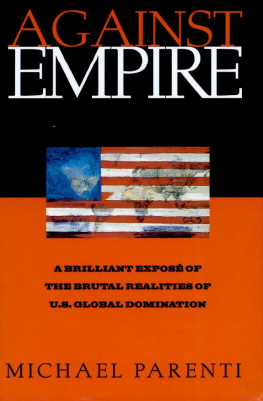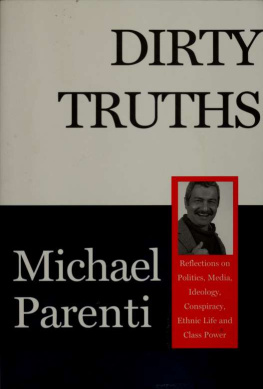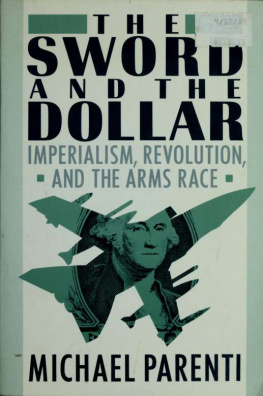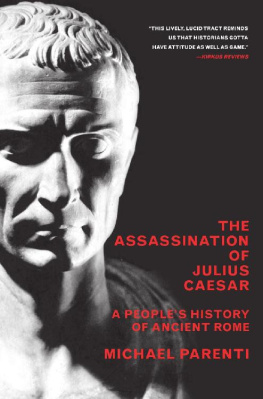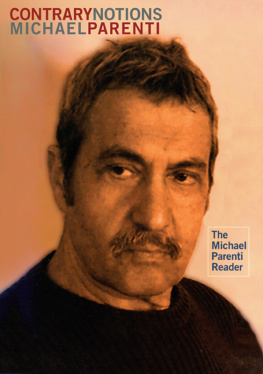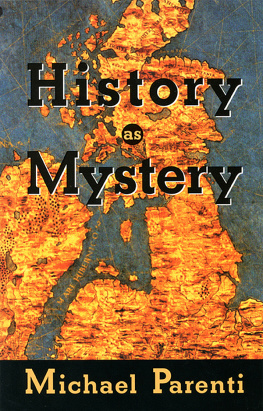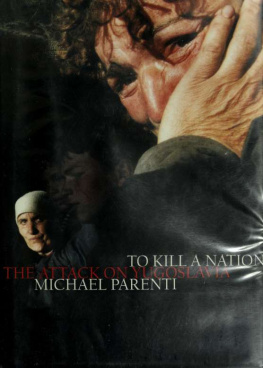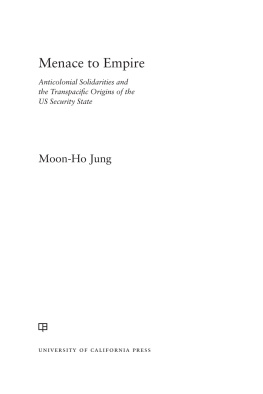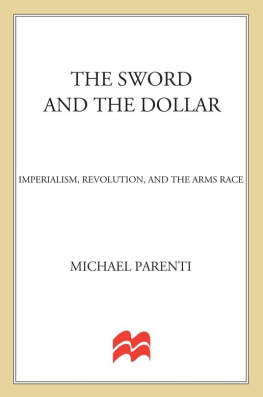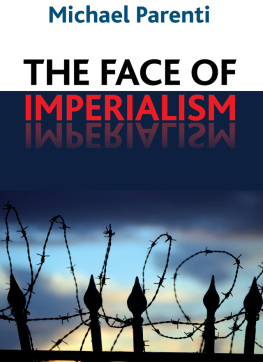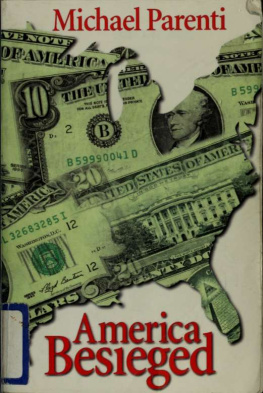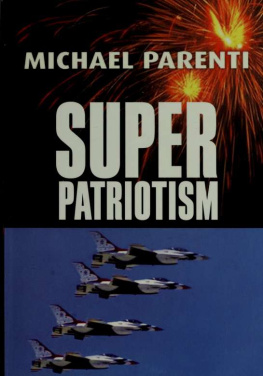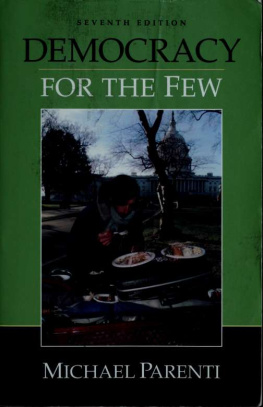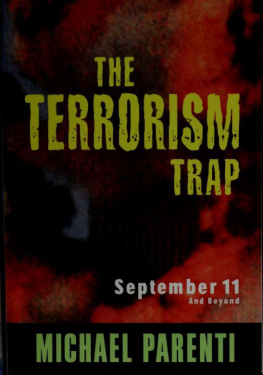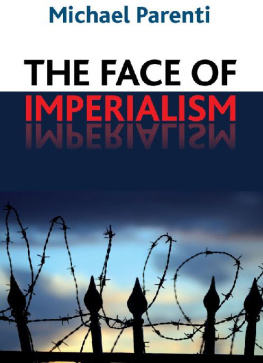Against Empire
by
Michael Parenti
To Dewayne Holmes, a former Crips leader who brought peace between gangs in Los Angeles and who then became a community organizer fighting for democratic reforms in the inner city. For his efforts he was railroaded into prison on trumped-up charges and is serving seven years.
And to Theresa Allison, his valiant mother, who continues the struggle for social justice in her community and country.
Acknowledgements
My heartfelt thanks to my valued friend Sally Soriano for her unwavering support and assistance in the writing of this book. Appreciation is also due to my research assistant Peggy Noton for her careful and crucial reading of the manuscript. A word of gratitude goes to my son, Christian Parenti, for furnishing me with useful sources and thoughtful criticisms. Kristin Nelson, Angela Bocage, and Ginger Walker also provided valuable assistance. Nancy J. Peters of City Lights Books provided an encouragement and enthusiasm that helped lighten my task, proving herself to be both a fine editor and good friend.
CHAPTER 1 IMPERIALISM 101
Imperialism has been the most powerful force in world history over the last four or five centuries, carving up whole continents while oppressing indigenous peoples and obliterating entire civilizations. Yet, empire as it exists today is seldom accorded any serious attention by our academics, media commentators, and political leaders. When not ignored outright, the subject of imperialism has been sanitized, so that empires are called "commonwealths," and colonies become "territories" or "dominions." Imperialist military interventions become matters of "national defense," "national security," and maintaining "stability" in one or another region. In this book I want to look at imperialism for what it really is.
Across the Entire Globe
By "imperialism" I mean the process whereby the dominant politico-economic interests of one nation expropriate for their own enrichment the land, labor, raw materials, and markets of another people.
The earliest victims of Western European imperialism were other Europeans. Some eight hundred years ago, Ireland became the first colony of what later became known as the British Empire.
Today, a part of Ireland still remains under British occupation. Other early Caucasian victims included the Eastern Europeans. The people Charlemagne worked to death in his mines in the early part of the ninth century were Slavs. So frequent and prolonged was the enslavement of Eastern Europeans that "Slav" became synonymous with servitude. Indeed, the word "slave" derives from "Slav." Eastern Europe was an early source of capital accumulation, having become wholly dependent upon Western manufactures by the seventeenth century.
A particularly pernicious example of intra-European imperialism was the Nazi aggression during World War II that gave the German business cartels and the Nazi state an opportunity to plunder the resources and exploit the labor of occupied Europe, including the slave labor of concentration camps.
The preponderant thrust of European, North American, and Japanese imperial powers has been directed against Africa, Asia, and Latin America. By the nineteenth century, they saw the Third World as not only a source of raw materials and slaves but a market for manufactured goods. By the twentieth century, the industrial nations were exporting not only goods but capital, in the form of machinery, technology, investments, and loans. To say that we have entered the stage of capital export and investment is not to imply that the plunder of natural resources has ceased. If anything, the despoliation has accelerated.
Of the various notions about imperialism circulating today in the United States, the dominant one is that it no longer exists. Imperialism is not recognized as a legitimate concept, certainly not in regard to the United States. One may speak of "Soviet imperialism" or "nineteenth-century British imperialism" but not of U.S. imperialism. A graduate student in political science at most universities in this country would not be granted the opportunity to research U.S. imperialism, on the grounds that such an undertaking would not be scholarly. [Chapter 10 deals in more detail the relationship between imperialism and academia.] While many people throughout the world charge the United States with being an imperialist power, in this country people who talk of U.S. imperialism are usually judged to be mouthing ideological blather.
The Dynamic of Capital Expansion
Imperialism is older than capitalism. The Persian, Macedonian, Roman, and Mongol empires all existed centuries before the Rothschilds and Rockefellers. Emperors and conquistadors were interested mostly in plunder and tribute, gold and glory. Capitalist imperialism differs from these earlier forms in the way it systematically accumulates capital through the organized exploitation of labor and the penetration of overseas markets. Capitalist imperialism invests in other countries, dominating their economies, cultures, and political life, and integrating their productive structures into an international system of capital accumulation.
A central imperative of capitalism is expansion. Investors will not put their money into business ventures unless they can extract more than they invest. Increased earnings come only with growth in the enterprise. The capitalist ceaselessly searches for ways of making more money in order to make still more money. One must always invest to realize profits, gathering as much strength as possible in the face of competing forces and unpredictable markets.
Given its expansionist nature, capitalism has little inclination to stay home. Almost 150 years ago, Marx and Engels described a bourgeoisie that "chases over the whole surface of the globe. It must nestle everywhere, settle everywhere, establish connections everywhere.... It creates a world after its own image." The expansionists destroy whole societies. Self-sufficient peoples are forcibly transformed into disfranchised wage workers. Indigenous communities and folk cultures are replaced by mass-market, mass-media, consumer societies. Cooperative lands are supplanted by agribusiness factory farms, villages by desolate shanty towns, autonomous regions by centralized autocracies.
Consider one of thousand such instances. A few years ago the Los Angeles Times carried a special report on the rain forests of Borneo in the South Pacific. By their own testimony, the people there lived contented lives. They hunted, fished, and raised food in their jungle orchards and groves. But their entire way of life was ruthlessly wiped out by a few giant companies that destroyed the rain forest in order to harvest the hardwood for quick profits. Their lands were turned into ecological disaster areas and they themselves were transformed into disfranchised shantytown dwellers, forced to work for subsistence wages when fortunate enough to find employment.
North American and European corporations have acquired control of more than three-fourths of the known mineral resources of Asia, Africa, and Latin America. But the pursuit of natural resources is not the only reason for capitalist overseas expansion. There is the additional need to cut production costs and maximize profits by investing in countries with plentiful supply of cheap labor. U.S. corporate foreign investment grew 84 percent from 1985 to 1990, with the most dramatic increase in cheap-labor countries like South Korea, Taiwan, Spain, and Singapore.
Because of low wages, low taxes, nonexistent work benefits, weak labor unions, and nonexistent occupational and environmental protections, U.S. corporate profit rates in the Third World are 50 percent greater than in developed countries. Citibank, one of the largest U.S. firms, earns about 75 percent of its profits from overseas operations. While profit margins at home sometimes have had a sluggish growth, earnings abroad have continued to rise dramatically, fostering the development of what has become known as the multinational or transnational corporation. Today some four hundred transnational companies control about 80 percent of the capital assets of the global free market and are extending their grasp into the ex-communist countries of Eastern Europe.
Next page
